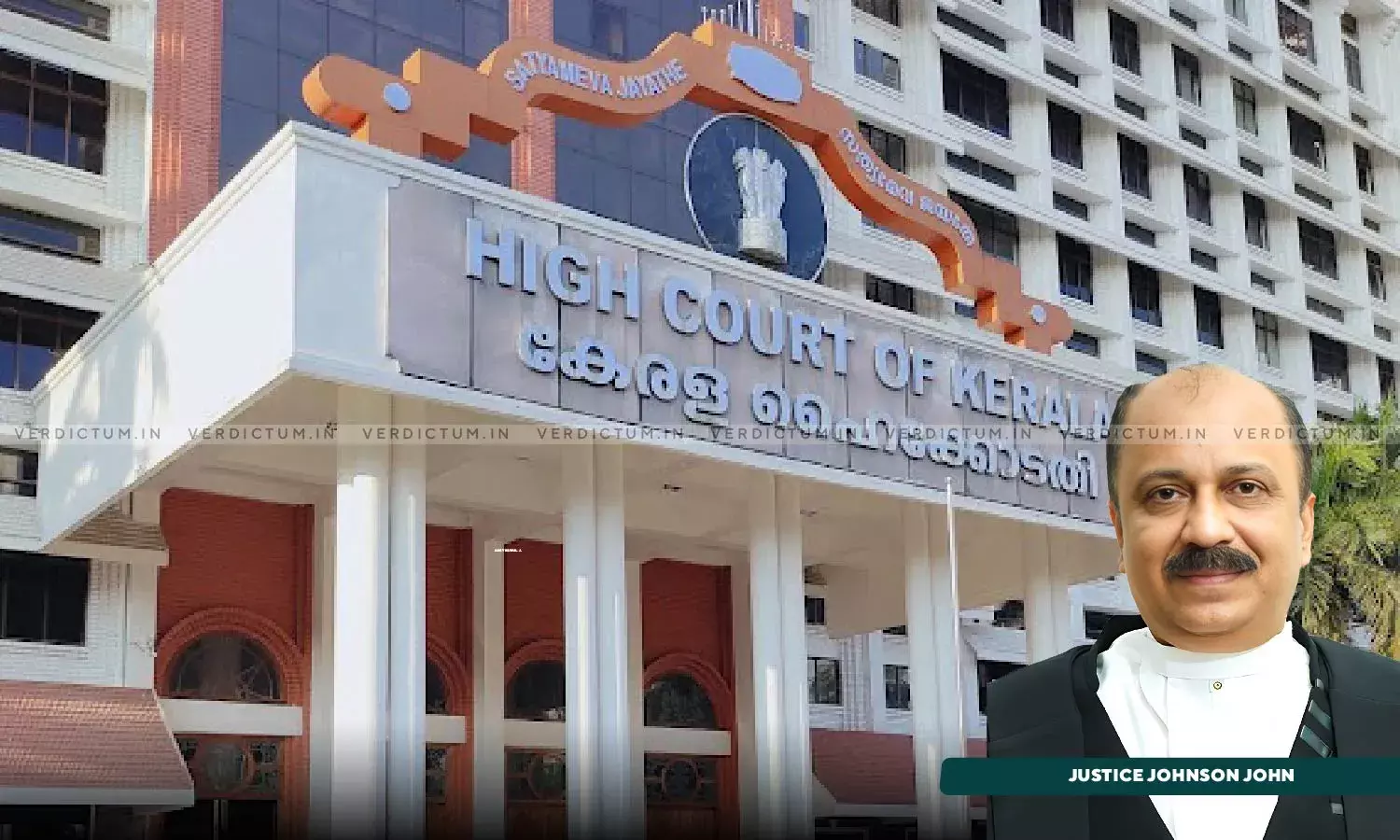Every Type Of Harassment Or Cruelty Won't Attract Offence U/S 498A IPC: Kerala High Court

Justice Johnson John, Kerala High Court
The Kerala High Court observed that not every form of harassment or cruelty falls within the ambit of Section 498A of the Indian Penal Code, 1860 (IPC).
The Court allowed an Appeal challenging the conviction passed by the Trial Court under Section 498A IPC.
The Court emphasized that any mistreatment intended to compel the victim to inflict harm upon themselves or commit suicide, or meet illegal dowry demands would attract liability under the said provision.
The Court also noted that minor spats or occasional disagreements between spouses, typical in everyday life due to differences of opinion are insufficient to establish the offence.
The Bench of Justice Johnson John observed, “It is well settled that every type of harassment or cruelty would not attract the offence under Section 498A IPC and to attract the offence under Section 498A IPC, it must be established that cruelty or harassment to wife was to force her to cause grave bodily injury to herself or to commit suicide, or that the harassment was to compel her to fulfil illegal demand for dowry”.
Advocate K. P Majeed appeared for the Appellant and Public Prosecutor Prasanth M. P appeared for the Respondent.
The Appellant approached the High Court challenging the conviction under Section 498A IPC. The charges implicated the Appellant and his mother (second accused) for the offence under Section 304B r/w Section 34 IPC, alleging cruelty and dowry demands that led to the victim setting herself on fire. The incident resulted in her demise. The FIR was registered, and after investigation, the case was filed. The Trial Concluded with the first accused being convicted under Section 498A IPC, sentenced to three years of rigorous imprisonment, and fined Rs. 25,000, with a default sentence of six months.
The Court framed the issue: “Whether the conviction and sentence imposed on the appellant for the offence under Section 498A IPC is legally sustainable?”
The Court observed a lack of evidence regarding kerosene on the victim's body. The Appellant challenged the Section 498A IPC finding, citing the absence of a framed charge and satisfactory evidence. The prosecution argued that evidence demonstrated the Appellant's history of demanding money and subjecting the deceased to mental and physical cruelty.
The Court noted Sub Inspector's role in recording the First Information Statement and registering the FIR was crucial. However, uncertainties arose during cross-examination regarding the scene mahazar preparation, as he was unsure if the death was a suicide.
Furthermore, the Bench observed that the deceased's mother testified to physical abuse and money demands by the first accused, but her statements faced inconsistencies and timing issues. The Bench noted complexities in the reliability of her testimony, especially with her daughter's consciousness until death and inconsistencies in police statements.
The Court noted that neighbours provided vague accounts of money demands for house construction by the deceased's husband, lacking specific details. One neighbour was declared hostile, denying earlier statements. The doctor highlighted challenges in differentiating accidental burns from those caused by inflammable substances.
Furthermore, the Court observed that during Section 313 CrPC questioning, the first accused denied subjecting his wife to cruelty or harassment, asserting no money demands. He explained his wife's attire for a wedding, narrating that while he was ironing, she went to the kitchen to boil milk. Upon hearing her cries, he rushed to the kitchen, sustaining burn injuries while trying to save her.
The Court also considered the testimony of the accused's brother, present during the incident for a nearby marriage. While conversing, Beena went to the kitchen, and her cries were heard. In the kitchen, they found her sari on fire. Beena told him her sari caught fire from the hearth, but in cross-examination, uncertainty arose about whether it was the stove or the hearth.
The Court observed that the prosecution failed to provide a satisfactory explanation for not presenting the treatment records of the victim and not calling the doctor who attended to her in the hospital. Despite the victim being fully conscious during the three days of treatment at the Medical College Hospital, the standard procedure of ascertaining the cause of injury from the patient's statement to the doctors was not followed.
The Bench noted that the last alleged incident of cruelty took place before the accused's housewarming ceremony. To prove the offence under Section 498A IPC, the Bench emphasised that the prosecution must establish the consequences of cruelty leading to a woman's suicide or causing significant harm.
To establish the offence under Section 498A IPC, the Court emphasized that it must be proven that the harassment or cruelty towards the wife was intended to compel her to cause severe bodily harm to herself, commit suicide, or fulfil an illegal dowry demand.
The Court noted a lack of evidence indicating that the deceased reported ill-treatment or abuse by the accused before her death, casting doubt on the occurrence of any mistreatment. The presented evidence failed to establish cruelty or harassment leading to her inability to fulfill dowry demands. The prosecution's argument, suggesting the deceased feared violence if she couldn't provide money for house construction, was deemed insufficient to constitute cruelty under Section 498A IPC. The court, upon careful review, found the prosecution had suppressed crucial evidence about the deceased's hospital treatment.
Given the circumstances and the absence of satisfactory proof of cruelty and harassment, the Bench noted that the accused was entitled to the benefit of reasonable doubt, justifying interference with the impugned judgment.
Accordingly, the Court allowed the Appeal and set aside the conviction and sentence of the Trial Court.
Cause Title: Sreekumar State Of Kerala (2024:KER:181)

